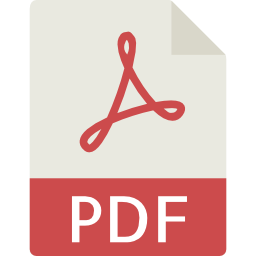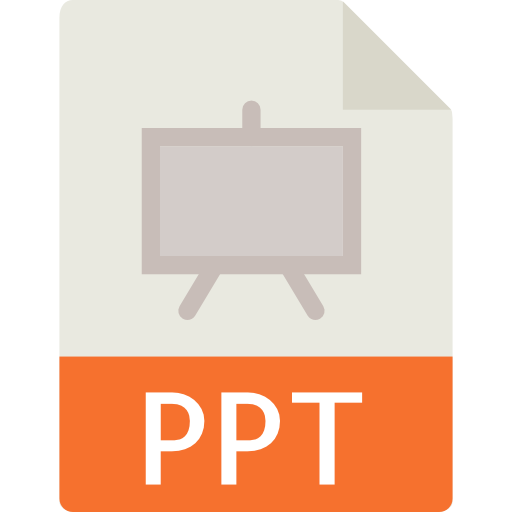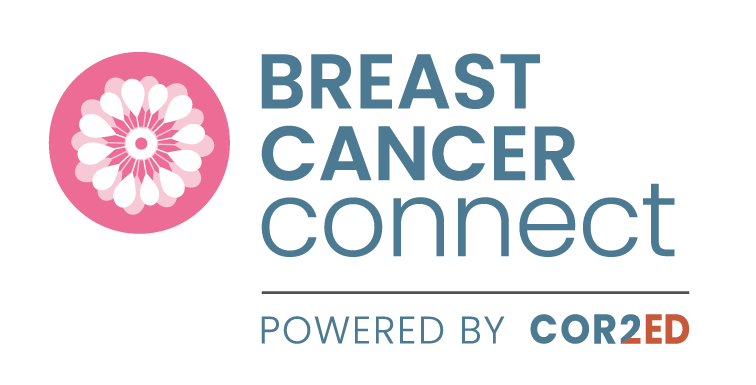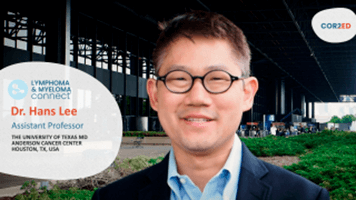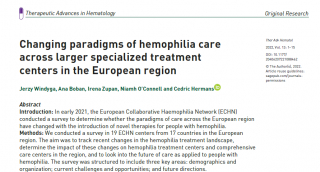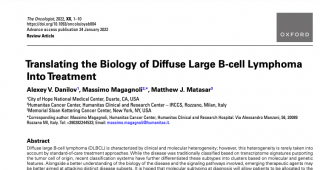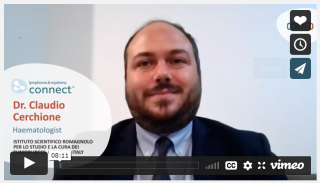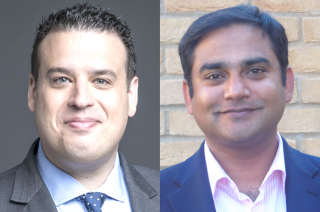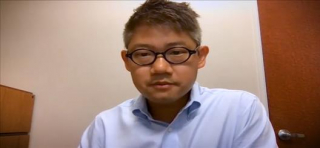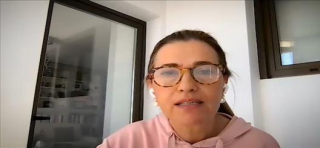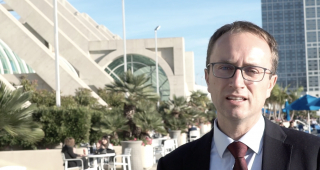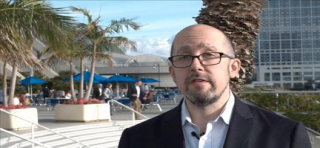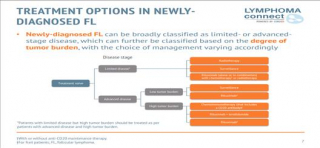
Lymphoma Update from ASH 2021
Lymphoma Update from ASH 2021
Dr. Matthew J. Matasar summarises the highlights in lymphoma from ASH 2021, including POLARIX, CAR-T in LBCL and mosunetuzumab in FL Dr. Matthew J. Matasar summarises the highlights in lymphoma from ASH 2021, including POLARIX, CAR-T in LBCL and mosunetuzumab in FLDr. Matthew J. Matasar
Watch the video and download the slides
Dr. Matthew J. Matasar
Medical Oncologist
Memorial Sloan Kettering Cancer Center
United States (US)
Dr. Matthew Matasar is a board-certified medical oncologist/hematologist, who received his undergraduate and medical degrees from Harvard University. His internal medicine training was completed at Columbia Presbyterian, where he earned a Master’s in biostatistics, while serving as Chief Resident. His fellowship training was in medical oncology at Memorial Sloan Kettering Cancer Center, where he subsequently joined faculty on the Lymphoma and Adult BMT services. Dr. Matasar is also the Director of the Lymphoma Survivorship Clinic, where he focuses on the management of long-term survivors of Hodgkin and non-Hodgkin lymphoma. As the Section Head for Aggressive B-cell Lymphomas, his research is focused on improving outcomes in relapsed but curable patients using novel therapies. He is the Medical Director at MSK Bergen, directing a team of expert oncologists in the delivery of cutting-edge care across cancer service lines to patients at the free-standing outpatient center in Montvale, New Jersey.
Dr. Matthew J. Matasar has received financial support/sponsorship for research support, consultation, or speaker fees from the following companies:
|
5 min
|
Dec 2021
This programme was made for you: your opinion matters
Share your feedback in just 4 clicks and help us to continue to create the content you need.
I agree that this educational programme:
Was valuable to me:
1/4
Has improved my knowledge of this topic:
2/4
Is likely to change my clinical practice:
3/4
Was balanced and unbiased:
4/4
download resources
This programme was made for you: your opinion matters
Share your feedback in just 4 clicks and help us to continue to create the content you need.
I agree that this educational programme:
Was valuable to me:
1/4
Has improved my knowledge of this topic:
2/4
Is likely to change my clinical practice:
3/4
Was balanced and unbiased:
4/4
Update from ASH 2021: Lymphoma
Introduction
Hello, I'm Dr. Matthew Matasar from Memorial Sloan Kettering Cancer Center and it's my pleasure to bring you important updates from ASH 2021. In the field of the management of B-cell lymphoma we have important updates to share with you.
I'm going to address with you today three important settings, which we have advanced this year at ASH. The first is in the treatment of newly diagnosed diffuse large B-cell lymphoma with the POLARIX trial. The second is in the second-line treatment of patients with large cell lymphoma who are transplant eligible, in which we have three studies evaluating the comparison of CAR-T to standard of care. And lastly, we have the medicine mosunetuzumab in the treatment of multiple relapsed follicular lymphoma.
POLARIX: first-line Pola-R-CHP in DLBCL
Let's start with POLARIX. This is a randomized, double blinded, globally conducted clinical trial evaluating the comparison of the standard of care R-CHOP chemo-immunotherapy to a novel regimen in which vincristine is substituted with polatuzumab vedotin, an antibody-drug conjugate targeting CD79b with an MMEA payload, that has previously shown activity in diffuse large B-cell lymphoma.
We saw at ASH 2021 and reported in the New England Journal of Medicine, that the study met its primary endpoint of an improvement in progression free survival with an overall absolute improvement in PFS of 6.5%. The study does not yet show any improvement in overall survival at this early time point. We expect the final survival data cut to occur in the summer of 2022.
That said, in this high-risk patient population with IPI 2+ disease, we see that the inclusion of polatuzumab vedotin really does improve outcomes in avoiding relapse.
Importantly, in evaluating the toxicity of these regimens, we see that the Pola-R-CHP regimen is no more toxic than the R-CHOP regimen, offering us with Pola-R-CHP a potential new standard of care for patients with newly diagnosed large cell lymphoma IPI 2+.
CAR-T in second-line treatment of LBCL
Let's go on to the second-line setting, where we had three studies evaluating CAR-T cell therapy compared to the standard of care of chemo-immunotherapy and autologous stem cell transplantation as consolidation. These are the ZUMA-7 study, evaluating axicabtagene ciloleucel; TRANSFORM, evaluating lisocabtagene maraleucel; and BELINDA, evaluating tisagenlecleucel.
Two studies, ZUMA-7 and TRANSFORM, were both positive trials for their primary endpoint of event-free survival improvement. Both of these studies also showed improvement in overall survival, with a p-value of less than 0.05, which nonetheless was not statistically significant on either study given the statistical designs underlying these trials.
The BELINDA trial with tisagenlecleucel, however, did not meet its primary endpoint of event-free survival, nor did it demonstrate an overall survival benefit for tisa--cel. There are reasons why this may be. The three studies do differ in terms of their design. The allowances of bridging therapy and the duration of bridging therapy. This, as well as differences in the co-stimulatory domains of the cellular products themselves, may explain these differences.
Nonetheless, in my opinion CAR-T cell therapy is going to, become a standard of care for high-risk relapsed/refractory large lymphoma in the second-line setting.
Mosunetuzumab monotherapy in FL
Lastly, mosunetuzumab, a CD3 bispecific B-cell engaging antibody, was reported out in patients with multiple relapsed follicular lymphoma. In the 90 treated patients we saw tremendous activity of this compound, with an overall response rate of 80% and a complete response rate of 60% and excellent durability of response, with a median progression-free survival of nearly 18 months. This was achieved despite the high-risk patient population being treated, with a high percentage of double refractory and refractory patients.
Summary
In summary, with these three advances, POLARIX, CAR-T cell therapy in the second line and the arrival of bispecific antibodies for follicular lymphoma, ASH ‘21 has brought me and my patients excellent news. It was my pleasure to share that with you today.
Update from ASH 2021: Lymphoma
LYMPHOMA & MYELOMA CONNECT Expert Dr. Matthew J. Matasar provides a summary of the highlights in lymphoma from the ASH 2021 meeting.
He shares his perspective on the clinical implications of the POLARIX trial (Pola-R-CHOP in DLBCL), three CAR-T trials in LBCL (TRANSFORM, ZUMA-7, and BELINDA), and mosunetuzumab in FL.
Subtitles in English are available by clicking on ‘CC’ within the video controls
LYMPHOMA & MYELOMA CONNECT is an initiative of COR2ED, supported by an Independent Educational Grant from Bayer and from Karyopharm Therapeutics.






